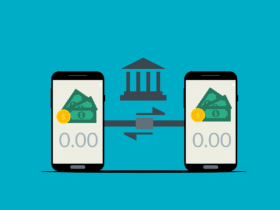Yes, Facebook does censor private messages. Facebook has never been shy to admit that they review posts.
However, they do this to ensure that the posts do not violate their community guidelines. Facebook users were shocked to learn that the platform was not fully private.
By the final quarter of 2021, Facebook recorded a staggering 2.91 billion active accounts. Earlier, it achieved 2 billion by the second quarter of 2017. Facebook in January 2021 was the platform on which Americans spent most of their time daily.
Given numbers like this, it’s safe to say that Facebook has a powerful grip on the world. Therefore, the privacy concerns come as no surprise, given the many global citizens who use the app.
The company attempts to take a nuanced approach with its censorship policies. This is because it caters to the needs of a global audience. Yet it recognizes that the world is a diverse place with various differing cultures, norms, values, and viewpoints.
Therefore, what’s kosher for some people might be haram for others. Consequently, Facebook has to walk a knife’s edge trying to provide a safe space to promote free speech while still barring dangerous content.
Does Facebook Censor Messages?
Vox published an interview with Facebook founder and CEO Mark Zuckerberg on April 2nd, 2018. During this, he revealed that Facebook does monitor messages.
Facebook Messenger’s automated systems scan through your private messages for any sign of child pornography or malware-infected links. Zuckerberg claimed that the company does this to identify and stop abusive behavior where possible.
Users can also report any messages which violate community guidelines. After which, the company’s moderators review content that users flag. When they confirm any content has violated community standards, they take it down.
Are Facebook Messages Monitored?

After the Cambridge Analytica scandal, Facebook users panicked. Eventually, they demanded answers. In an interview a few weeks later, Zuckerberg confirmed that their A.I. systems monitor and scan Facebook messages to detect dangerous or abusive content.
He also said that when you send a photo on Messenger, their automated systems scan it. They use photo-matching technology to try to detect known child exploitation imagery. Similarly, when you send a link, they scan it for malware or viruses.
This statement seems to imply that although Facebook scans our messages, the human moderators are not the ones monitoring them.
In another interview, Mark Zuckerberg also recalled a phone call he once got. Facebook had detected that people were trying to spread sensational messages through Messenger to each side of the conflict, which could potentially have promoted further conflict.
The company also admits that analyzing the content people share is part of how it combats abuse and singles out dubious behavior.
There could be no clearer admission that Facebook monitors messages. They claimed that it was only to prevent warring factions from breaking out in violence – a noble reason.
However, people still question Facebook’s concerns, considering the power it holds worldwide – are they genuine or not?
The interview took place a few weeks after Facebook came under fire for being at the center of a scandal involving Cambridge Analytica (C.A.), a British consulting firm.
The scandal involved C.A. collecting personal data belonging to about 87 million Facebook users without their consent.
Cambridge Analytica
CA was established in 2013 as a subsidiary of a private intelligence company, SCL. The firm had offices in London, Washington D.C., and New York. As a political consulting firm, the organization blended data mining, data analysis, data brokerage, and strategic communication.
These were its tactics of choice to control elections. The parent company has been using similar tactics since the 1990s.
However, while the parent company focused on manipulating developing countries, C.A. worked on Western countries such as the USA and U.K.
The Privacy Infringement Issue

In March 2018, an app used a personality quiz to collect personal information from 270,000 willing participants. The app, “This Is Your Life,” used the data it obtained to build a psychological profile for the users.
They intended to use the data for academic purposes. At least that was what they claimed. Using Facebook’s Open Graphs platform, the app also collected the personal data of the Facebook friends of the initial users. The friends of the users did not consent to this.
Using the data they had illegally obtained, C.A. then targeted the users with bespoke political ads based on the psych profiles they had built.
The real issue is that Facebook allowed them to overstep the boundaries of the consent that users gave them.
Facebook somehow managed to avoid any severe backlash when the public found out what happened. They claimed that C.A. violated their data agreements. Within a couple of months, the company and its parent filed for insolvency.
Does Facebook Read Your Private Messages?
According to former Facebook moderators, the moderators can view your messages if they want to.
The only thing stopping the human moderators from spending their office hours scrolling through the endless tomes of messages sent on their platform is their immense workload.
However, the moderators can and do view and review messages that users report to confirm whether or not they violate community guidelines.
They also spend their days reviewing hours and hours of content. The company’s A.I. systems also scan your messages for certain illegal content.
Facebook does not take action on irrelevant messages like mild personal experiences. Their systems target extreme stuff like child sexual exploitation and attempts at stirring up violence.
A Facebook envoy has stated that the company values your privacy. They said that keeping your messages private is their priority. They aim to protect the community with A.I systems that detect things like known images of child exploitation and malware.
Humans do not do this. They do not listen to your voice and video calls. Nor do they read your chats.
Is Messenger Safe for Private Conversation?

It would be unwise for you to trust Facebook with your confidential conversations. This goes double if the conversation topic is sensitive. Unless you’re chatting using the Secret Conversations feature, you should assume Facebook is listening in.
Unlike regular Messenger messages, Secret Conversations use end-to-end encryption to secure your conversations from all third parties.
Not even other devices you’re signed into can see your Secret Conversations on Messenger. Each device you use for Secret Conversations has its own chat history.
If someone hacks Facebook’s servers or your personal Facebook account, you may possibly recover all of your conversations and photos.
This is because Facebook’s servers save your chats verbatim. So, if Facebook wanted to, they could go through all of your chats or turn them over to law enforcement or the government.
Facebook admits that its bots scan through Messenger chats looking for explicit content. They say they do this to identify and prevent abuse and violence from breaking out.
In his interview with Vox, Mark Zuckerberg cited the ethnic cleansing crisis in Myanmar as an example of when Facebook intervenes by censoring messages.
How to Open Secret Conversations on Messenger
There are two methods with which to switch to secret chats on Facebook Messenger. Either you:
- Open Facebook Messenger, either on the app or in your browser.
- Next, tap the pencil icon in the upper right corner of the screen to begin a new chat.
- After that, toggle the lock icon on the upper right-hand corner of the New Message screen and make sure it’s turned on. If it’s turned on, it should appear brighter than when it wasn’t.
- Lastly, select the user you want to have a secret chat with. You can now chat in peace without worrying that anyone else might be reading your messages.
Alternatively, you can decide to:
- Open Messenger, either the app or on your browser.
- Secondly, open the chat of the person you want to begin a secret chat with.
- Next, tap on their name or profile picture to bring up their list of options.
- Search for and select “Go to Secret Conversation”. It’s the option with a padlock icon beside it.
- Begin your chat in private.
Conclusion
Many people have reason to distrust Facebook and its approach to their users’ privacy. The tech titan admits to scanning through the messages sent on Messenger and censoring some as they see fit.
They also claim to value their users’ privacy and that they only enforce their monitoring and censorship in the most extreme of cases. They only do this to prevent real-world harm to people.
Despite all their lip service, Facebook keeps finding itself at the center of one privacy scandal or the other. Typically, the claims involve allegations that the company sells its users’ data to third parties who use it to exploit the masses for selfish reasons.
With the amount of unchecked power Facebook holds, they need to be held accountable for the way they deal with users’ data.


















